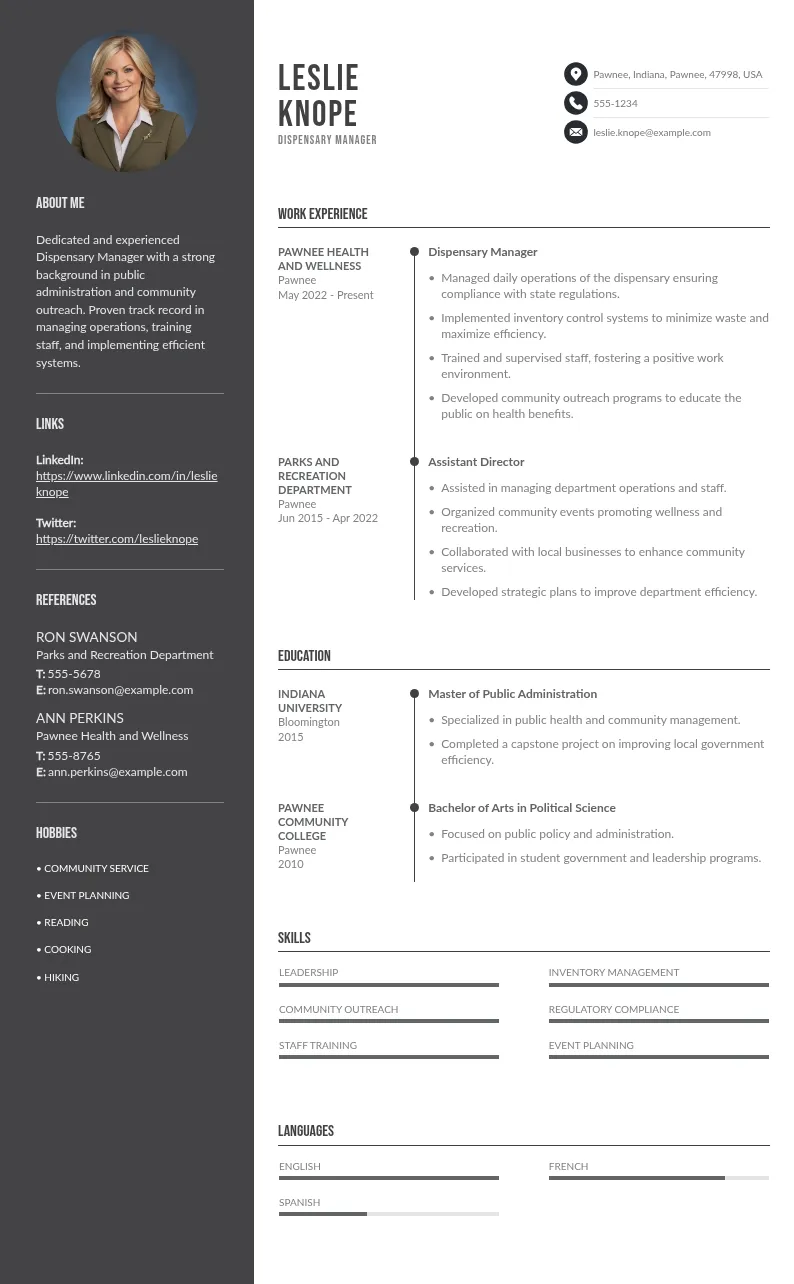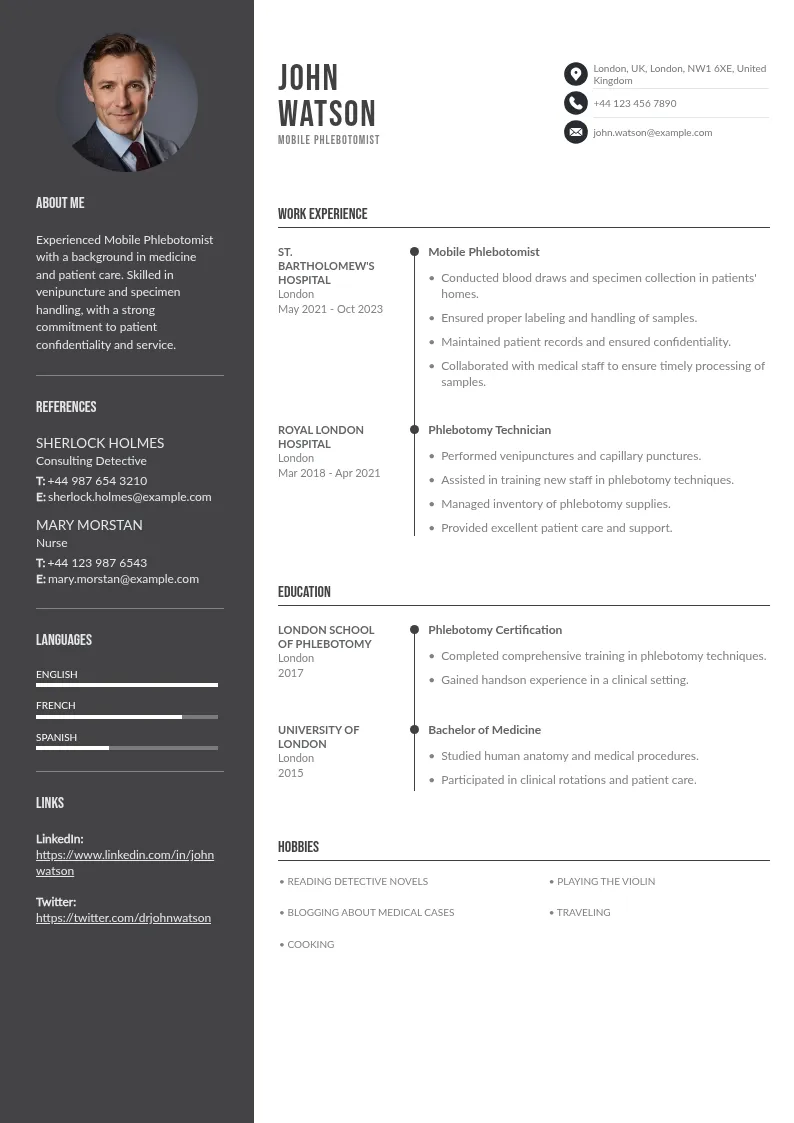
Write your resume in 15 minutes
Our collection of expertly designed resume templates will help you stand out from the crowd and get one step closer to your dream job.


This article explores why EQ is essential in the workplace, how it influences leadership and decision-making, and practical ways to strengthen it.
The Importance of Emotional Intelligence in Workplace Success
Emotional intelligence (EQ) plays a major role in how people interact with colleagues, solve problems effectively, and perform under pressure. It shapes daily workplace interactions, influencing communication, decision-making, and leadership. A workplace emotional intelligence culture fosters smoother operations, minimizing conflicts and encouraging stronger collaboration among employees.
1. Improves Decision-Making
People with high emotional quotient make more thoughtful and well-balanced decisions because they consider both logic and emotional awareness. They do not allow frustration, stress, or personal bias to cloud their judgment, ensuring they respond rather than react. By staying objective, evaluating different viewpoints, and remaining composed under pressure, they make choices that positively impact both their work and their teams.

2. Strengthens Leadership Skills
Great leaders go beyond simply managing workloads; they understand, support, and uplift their teams. Emotionally intelligent employees remain calm in high-pressure situations, communicate with clarity, and foster trust among colleagues. A leader with strong EQ creates an environment where employees feel valued, motivated, and encouraged to perform at their best.
3. Enhances Team Collaboration
Successful teams thrive on trust, patience, and open communication. Employees with greater emotional intelligence recognize different work styles, respect diverse opinions, and contribute to team efforts without unnecessary tension. Their ability to manage relationships fosters a collaborative environment where teamwork is efficient, effective, and enjoyable for everyone involved.
4. Reduces Workplace Stress
Heavy workloads, tight deadlines, and office dynamics can create overwhelming stress, affecting productivity and morale. Emotionally intelligent individuals recognize when their own emotions are escalating and use healthy coping strategies to maintain balance. Instead of reacting impulsively, they stay focused, remain solution-oriented, and manage workplace stress in a way that keeps them productive and composed.
5. Improves Conflict Resolution
Disagreements in the workplace are inevitable, but emotional intelligence determines how they are handled. Employees with strong EQ remain calm during conflicts, listen actively to different viewpoints, and find practical solutions that satisfy all parties involved. By preventing minor disagreements from escalating into major disputes, they maintain strong professional relationships and contribute to a more harmonious work environment.

6. Improves Effective Communication
A high level of emotional intelligence strengthens both verbal and nonverbal communication skills. Employees who are emotionally aware carefully choose their words, consider their tone, and pay attention to body language when interacting with others. This reduces misunderstandings, improves clarity in discussions, and fosters stronger workplace relationships built on trust and mutual understanding.
7. Increases Job Satisfaction
Employees who effectively manage their emotions and maintain strong workplace relationships tend to find greater fulfillment in their jobs. A high EQ allows individuals to set boundaries, focus on their strengths, and handle workplace challenges with confidence. As a result, they remain engaged, motivated, and committed to their roles for the long term.
8. Strengthens Client and Customer Relations
The ability to understand and respond to emotions appropriately is essential for building and maintaining strong client relationships. Professionals with high EQ handle difficult conversations with patience, empathy, and professionalism, ensuring that clients feel heard and valued. This fosters trust, enhances customer satisfaction, and leads to stronger business partnerships that last over time.
9. Encourages Adaptability in a Changing Workplace
Workplaces are constantly evolving due to new technologies, shifting responsibilities, and industry changes. Employees with strong emotional intelligence embrace change with a problem-solving mindset, rather than resisting or feeling overwhelmed by it. Their ability to remain flexible, open-minded, and proactive makes them reliable contributors in any fast-paced work environment.
10. Builds a Positive Work Culture
The overall atmosphere of a workplace is shaped by how employees interact with one another. When individuals communicate openly, manage their emotions effectively, and treat colleagues with kindness and respect, the entire work culture improves. A workforce that prioritizes emotional intelligence experiences higher morale, increased teamwork, and a supportive environment that drives long-term success for both employees and the organization.

Five Key Components of Emotional Intelligence
Emotional intelligence goes beyond staying composed or getting along with coworkers. It involves recognizing emotions, managing responses, and strengthening workplace relationships. Developing these five key skills will enhance your ability to navigate challenges, communicate effectively, and advance in your career.
1. Self-Awareness
Knowing your strengths, weaknesses, and emotional triggers is the foundation of emotional intelligence. Self-awareness helps you recognize when stress, frustration, or ego is influencing your decisions. The more you understand your emotions, the better you can control them instead of letting them control you.
2. Self-Regulation
Work brings pressure, difficult people, and unexpected setbacks. Self-regulation keeps emotions in check so they don’t lead to impulsive decisions, workplace drama, or regret. It allows you to pause, assess situations objectively, and respond with clarity instead of reacting on impulse.
3. Motivation
People with strong emotional intelligence stay focused even when work gets tough. They set goals, push through challenges, and stay productive without relying on external validation. This kind of internal drive helps build resilience and keeps career growth on track.
4. Empathy
Understanding others’ perspectives makes communication smoother and teamwork stronger. Empathy helps you pick up on unspoken tensions, recognize when someone needs support, and respond in ways that build trust. The ability to read a situation beyond words is what makes the difference between a good coworker and a great leader.
5. Social Skills
Strong social skills help you navigate workplace dynamics, resolve conflicts, and build professional connections. People with high EQ know how to listen, adapt their communication style, and collaborate without unnecessary friction. These skills make working with others easier and open doors to new opportunities.

How to Improve Emotional Intelligence at Work
Emotional intelligence (EQ) is a skill that anyone can develop with the right mindset and daily practice. How you manage emotions, communicate, and handle challenges shapes your professional growth. Emotional intelligence training helps individuals strengthen these abilities, leading to a more productive and positive work environment.
1. Identify Your Weak Spots
Improving emotional intelligence starts with recognizing where you struggle. Maybe you react too quickly under stress, avoid difficult conversations, or have trouble reading social cues. Paying attention to these patterns helps you focus on the areas that need the most work.
2. Reflect on Past Emotional Reactions
Looking back at how you’ve handled workplace situations can reveal a lot about your emotional intelligence. Think about times when you felt frustrated, defensive, or overwhelmed. Understanding what triggered those reactions and how they impacted your decisions helps you respond better in the future.
3. Ask for Honest Feedback
Other people see blind spots you might miss. Ask a trusted coworker, mentor, or manager how you handle stress, teamwork, and conflict. Their insights can highlight areas for improvement and give you a clearer picture of how your emotions affect those around you.
4. Learn to Pause Before Reacting
A quick emotional reaction can lead to regret, misunderstandings, or unnecessary tension. When faced with a tough situation, take a moment to breathe, assess what’s happening, and choose a response that keeps the situation under control. This habit helps prevent emotional outbursts and improves decision-making.

5. Practice Emotional Intelligence Every Day
Like any skill, emotional intelligence gets stronger with practice. Pay attention to how you communicate, manage stress, and interact with colleagues. Small, consistent efforts like active listening, controlling emotional impulses, and considering different perspectives lead to real improvement over time.
Conclusion
High emotional intelligence is a game changer for workplace success. It helps you communicate better, manage stress, and build relationships that make work easier and more rewarding. Developing emotional intelligence skills takes practice, but even small changes can create a big impact. Start paying attention to your emotions, listen more, and approach challenges with a level head. The more you develop these skills, the more confident, adaptable, and successful you will become.

















